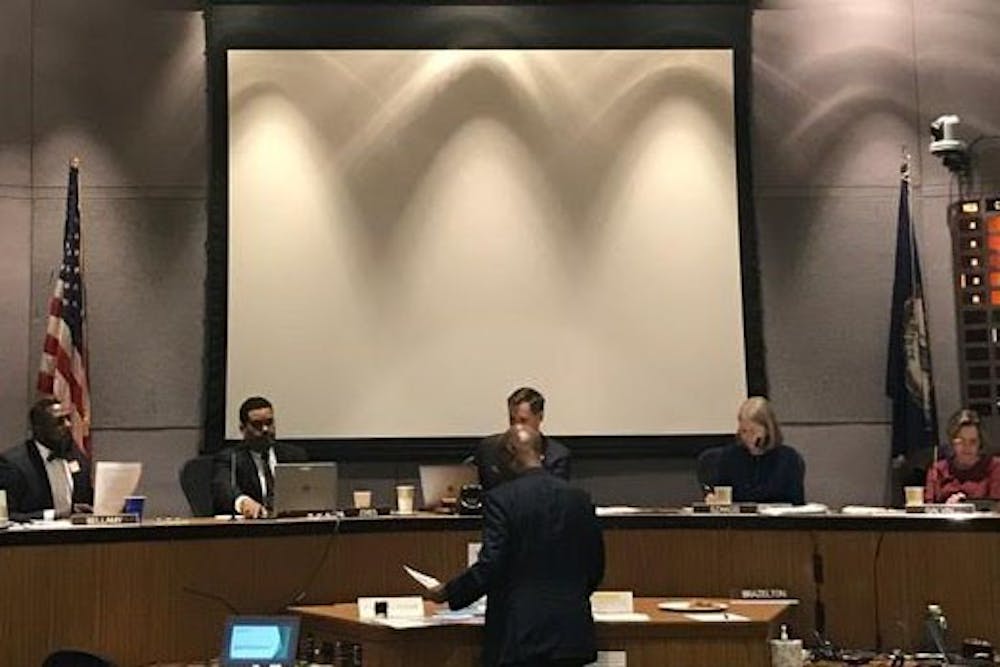The Charlottesville City Council passed a resolution Monday opposing President Donald Trump’s proposed budget increase of $54 billion in federal military spending and a reduction in funding to various agencies, including the Environmental Protection Agency.
The resolution, drafted by Council member Kristin Szakos, passed 4-0 with Mayor Mike Signer abstaining.
Szakos proposed the resolution after a number of citizen speakers petitioned the Council at its March 6 meeting to resist efforts by the Trump administration to increase federal spending on militarization and reduce funding to environmental and human agencies important to several members of the Charlottesville community.
“Our community’s human and environmental needs are critical, and our ability to respond to those needs depends on federal funding for education, welfare, public safety and infrastructure maintenance, transit and environmental protection,” the resolution reads.
The resolution also said the reduction of federal funds dedicated to matters of international relations is a negative aspect of Trump’s proposed budget increase in relation to refugees in the Charlottesville community.
The resolution also called upon Fifth Congressional District Rep. Tom Garrett (R-Va.) to reject Trump’s budget increase and “to begin moving in the opposite direction, to increase funding for human and environmental needs and reduce the military budget.”
In debating the resolution with fellow Council members, Szakos said it was legal under federal and local jurisdiction concerning public policy.
”[The resolution] complies with policy motions on federal issues, that impact the ability to govern locally,” Szakos said
Signer said he admired the community activists who raised the budget issue to the attention of the Council and described Charlottesville as a “capital of resistance” in relation to public policy development.
However, Signer ultimately abstained from a vote on the resolution, citing the finite nature of the proposal. He said it was a narrow response to future measures enacted by the Trump administration and exceeded the limits of governing authority granted to the Council.
“I’m hesitant due to the focus on a single policy issue,” Signer said. “[It is] not our job as a local governing body to decide federal policy.”
Vice Mayor Wes Bellamy said he was “perplexed” by Signer’s reasoning, citing the example of sanctuary cities as evidence of local governments effectively challenging federal policy in order to protect immigrants.
Before the vote on the matter, Council member Bob Fenwick made a final appeal to the Council in favor of Szako’s proposed resolution.
“It is brief, it is focused and it reflects a consensus of the values of our city,” Fenwick said. “This community, this state and this country have had enough of war. It is time that we returned our attention to people instead of power.”






